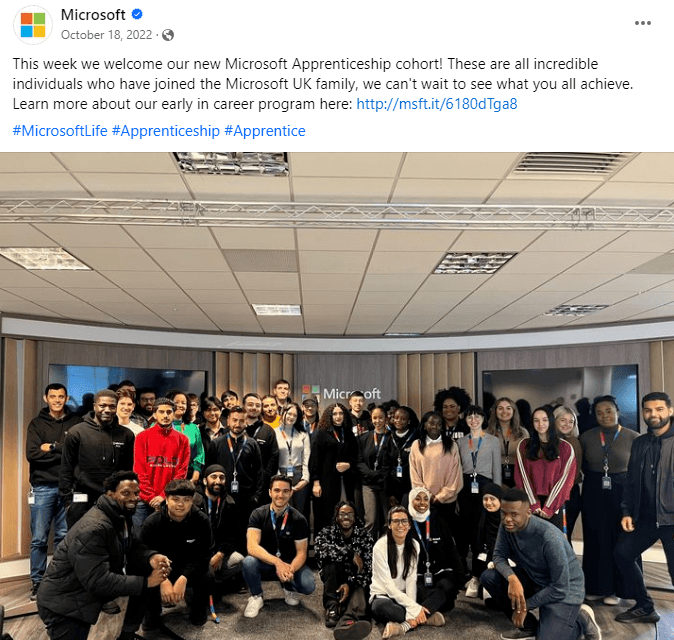Content marketing is the basis for several digital marketing strategies, from search engine optimization (SEO) to social media marketing. With a content marketing plan, you create the foundation for producing original, reliable, and shareable content that builds your brand’s online reputation and visibility.
Learn how to get started now, or get professional help with our content marketing services!
What is a content marketing plan?
A content marketing plan is a roadmap for producing and distributing a piece of content, like an online guide. Content marketing plans are a part of content marketing strategies and help businesses achieve larger goals, like increased visibility, brand awareness, market share, and revenue.
Why are content marketing plans important?
Content marketing plans are important for a few reasons, including the following:
- Building online visibility
- Creating brand authority
- Attracting leads
- Nurturing users
- Generating sales
- Growing market share
- Supporting other digital channels
In content marketing, plans are essential for executing content marketing strategies.
How to develop a content marketing plan
Learn how to develop a content marketing plan now:
- Define your goals
- Outline your target audience
- Determine your content topic
- Choose your content format
- Build your content
- Promote your content
- Measure your performance
1. Define your goals
First, define your campaign goals using the S.M.A.R.T methodology, which stands for:
- Specific
- Measurable
- Achievable
- Realistic
- Timely
Some research into the following areas can help you build an accurate S.M.A.R.T. goal:
- What are the larger goals for content marketing?
- How long will the content marketing campaign run?
- What resources are available for the campaign?
- Which metrics are measurable with our tech stack?
If unsure, speak with leadership to further define your strategy’s focus.
2. Outline your target audience
Next, outline your target audience.
Depending on your content marketing program, you might have documentation that outlines your audience. However, there is value in further defining your audience for a content marketing plan since this will provide invaluable guidance when distributing your content.
Some common target audience features include the following:
- Pain points
- Interests
- Motivations
- Demographics
For example, a family-based retail store might focus on mothers with children under five. These mothers are looking for clothes that use bamboo fabric, plus offer seasonal or on-trend designs.
You can choose your campaign’s topic based on your target audience.
3. Determine your content topic
Your content topic should consider several factors, including your:
- Campaign goals
- Target audience
- Campaign resources
- Campaign timeline
Resources and time will serve as your most significant constraints. Even if you have a short timeline and few resources, you can still create original, high-quality content. You just might have to use an unexpected format, like a micrographic vs. an online guide.
For researching your content topic, consider these tactics:
- Browse online forums
- Find keyword gaps between you and your competitors
- Explore industry trends or trending topics
- Investigate social media influencer posts
- Using AI content tools, like ChatGPT, to brainstorm ideas
When choosing a topic, we recommend investigating its search volume. Long-term, you’ll likely want the content to generate traffic, so optimizing the content for search will help it attract website traffic without ongoing promotion.
Of course, your content format will influence this decision — which you can decide beforehand.
4. Choose your content format
There are multiple content formats available, including the following:
- Blog posts
- Downloadable guides or PDFs
- Infographics
- Micrographics
- Videos
- Quizzes
- Tools
- And more

Which you choose for your content marketing campaign will depend on the following:
- Your timeline
- Your resources
- Your goals
- Your topic (if known)
Typically, written content is easier than interactive content to produce. While written content requires a copywriter and some design-savviness in a tool like Canva, interactive content can demand a web designer.
5. Build your content
With your content topic and format selected, you can start producing your content by:
- Writing your content
- Creating your visuals
- Proofing your content
- Developing your content (if needed)
Depending on your content marketing strategy, this stage might involve several people like:
- Content marketers
- Copywriters
- Copyeditors
- Web designers
- Web developers
In most cases, content plans operate with a content marketer and copywriter.
P.S. Don’t forget to check your content for grammar errors and typos before publishing! You might be asking, “does grammar matter in content marketing?” Yes! Correct grammar sends valuable trust signals to your audience, so be sure to check and fix any issues before publishing!
6. Promote your content
Finally, you can promote your content.
There are several options here, including the following:
- Upload your content to your site
- Share your content to your social media profiles
- Use social media services to expand your reach
- Advertise your content with pay-per-click (PPC) ads and PPC services
- Implement content repurposing for omnichannel SEO by adapting your original content into different formats across multiple platforms
- Use email marketing services to share your content with your newsletter subscribers
- Forward your content to your industry contacts

How much you distribute your content will depend on the content and your campaign’s resources. For example, a downloadable guide might receive all the above options. In comparison, a blog post might get posted to social media and shared via email.
7. Measure your performance
Once your content goes live, you can start measuring its performance. How you measure its results will depend on your campaign’s goals from earlier. Typically, a tool like Looker can compile the data into a helpful visual report.
To boost your analysis, check out the latest content marketing statistics for key insights on performance and conversion rates that can help you gauge your content’s success!
Streamline your content marketing plans
Congrats!
You’ve learned the basics of content marketing plans. Now, you’re ready to create yours.
If you’re searching for professional help in getting started, consider the experts behind SEO.com, WebFX. With our award-winning team of SEO content specialists and industry-leading digital marketing services, we can help you produce content that delivers results.
Learn more by contacting us today!

$3bn+
revenue driven for clients



Add WebFX to your content marketing toolbox today
Get SEO ProposalTable of Contents
- What is a Content Marketing Plan?
- Why Are Content Marketing Plans Important?
- How to Develop a Content Marketing Plan
- 1. Define Your Goals
- 2. Outline Your Target Audience
- 3. Determine Your Content Topic
- 4. Choose Your Content Format
- 5. Build Your Content
- 6. Promote Your Content
- 7. Measure Your Performance
- Streamline Your Content Marketing Plans
$3bn+
revenue driven for clients



Add WebFX to your content marketing toolbox today
Get SEO ProposalWhat to read next
- Feb 11, 2026
- 9 min. read
- Feb 11, 2026
- 5 min. read



